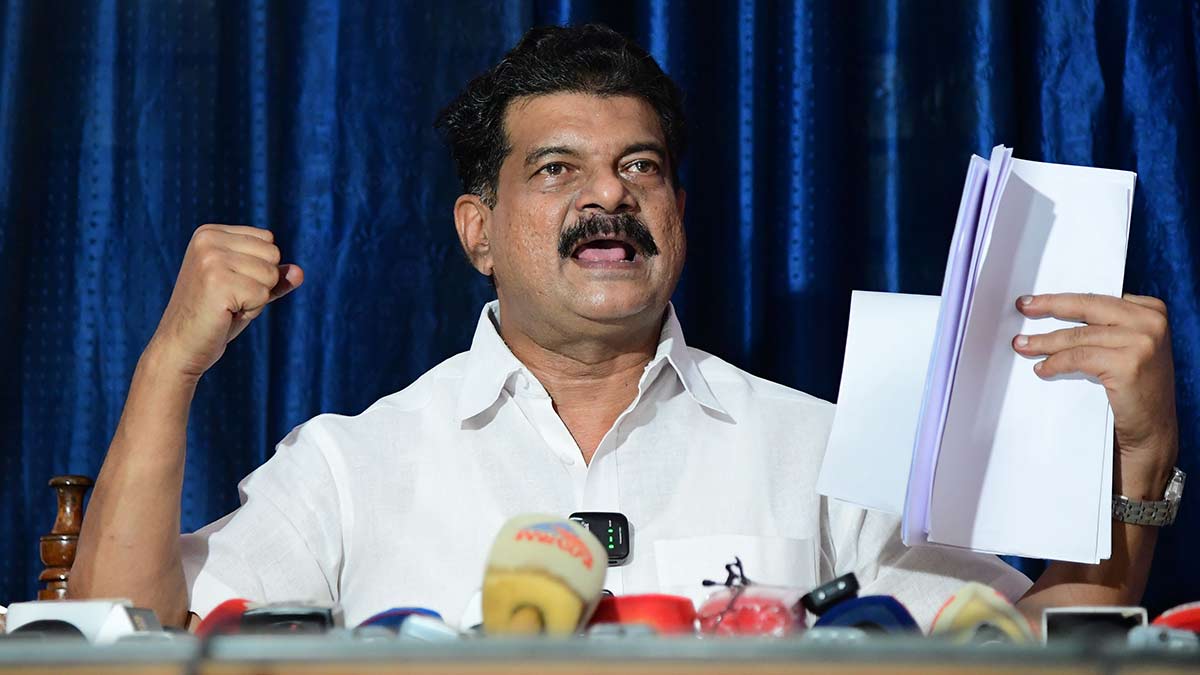Analysis: Nilambur byelection and PV Anvar's uncertain future with UDF
 P.V. Anvar | Fahad Muneer
P.V. Anvar | Fahad Muneer
The political landscape in Nilambur is marked by uncertainty, with P.V. Anvar, known for his fluctuating political journey, navigating a complex terrain of potential alliances and serious accusations.
Formerly an independent legislator representing Nilambur with LDF backing, Anvar's departure from the CPI(M) arose from significant disagreements regarding government policies. A pivotal point of contention was the alleged protection provided to ADGP M.R. Ajith Kumar, whom Anvar has publicly claimed maintains close affiliations with the RSS and BJP.
Anvar's charges, including assertions of police involvement in disrupting the Thrissur Pooram to favor the BJP, alongside broader criticisms of the state's internal security framework, have sparked substantial political debate. His subsequent, unsuccessful attempts to align with the DMK ultimately led him to join the TMC, a move seen by some as a calculated effort to remain politically relevant.
The UDF now confronts a dilemma. While Anvar's regional support and his vocal criticism of the LDF's purported connections with the BJP could offer a potential advantage in upcoming elections, his history of shifting political allegiances and past allegations of corruption pose considerable risks. Congress has indicated a conditional openness to Anvar joining their ranks, either individually or by establishing a new political entity – a scenario the UDF views cautiously due to potential complications in seat allocation and internal dynamics.
ALSO READ | PV Anvar vs Pinarayi Vijayan: Thrissur Pooram disruption, ignorant CM, Muhammad Riyas, 5 scathing statements from Nilambur MLA's press meet
Anvar's claims against ADGP M.R. Ajith Kumar, who has acknowledged meeting RSS figures, have become a central point of political contention. The opposition sees this situation as an opportunity to hold the ruling government accountable and capitalize on public unease regarding perceived collaborations between the BJP and CPI(M). Given Kerala's prevailing political sentiment against the BJP, Anvar's narrative has the potential to resonate with a segment of the electorate.
The crucial question remains whether Anvar can translate his regional support and accusations into tangible electoral gains. While reports suggest he maintains a degree of influence, his political trajectory is marked by controversy. Should Anvar remain committed to the TMC, the likelihood of him collaborating with the UDF significantly decreases. Ultimately, the UDF's decision will hinge on a careful evaluation of Anvar's potential to attract votes weighed against the inherent risks of associating with a contentious figure.
• Political Volatility: Anvar's career illustrates the dynamic nature of Kerala's political arena, where alliances can be pragmatic and driven by immediate political objectives.
• Accusations and Public Opinion: The allegations of cooperation between the BJP and CPI(M) have the potential to galvanize voters opposed to such alignments, potentially benefiting the UDF.
• UDF's Calculated Approach: The UDF's stance on Anvar will involve a strategic assessment, balancing potential electoral gains against the risks of aligning with a controversial individual.
• Electoral Uncertainty: The extent of Anvar's ability to sway voters remains uncertain, and his political future depends on his capacity to maintain relevance in a rapidly evolving political landscape.
India